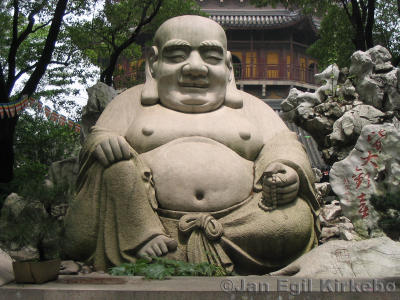Buddha Breaker Elected to Afghan Parliament

Ex-Governor Elected to Afghan Parliament
By AMIR SHAH
Associated Press Writer
KABUL, Afghanistan (AP) - A former regional governor who oversaw the destruction of two massive 1,500-year-old Buddha statues during the Taliban's reign was elected to the Afghan parliament last month, officials said Tuesday as results from two provinces were finalized.
Elsewhere, U.S.-led coalition forces killed four police officers after mistaking them for militants during an operation in the southern province of Kandahar, provincial Gov. Asadullah Khalid said. The coalition said it could not confirm the shootings and was investigating.
Mawlawi Mohammed Islam Mohammadi, who was the Taliban's governor of Bamiyan province when the fifth-century Buddha statues were blown up with dynamite and artillery in March 2001, was chosen to represent the neighboring province of Samangan, according to results posted by the U.N.-Afghan election organizers. Election law did not bar former Taliban officials from participating in the Sept. 18 polls.
International outcry followed the destruction of the giant Buddhas, which were chiseled into a cliff and famed for their size and location along the ancient Silk Road linking Europe and Central Asia. Archaeologists in Bamiyan have been painstakingly collecting the stone remains of the two statues - the largest of which was 174 feet high - and are considering rebuilding them.
Mohammadi told The Associated Press he should not be held responsible for the destruction of the statues, which the Taliban considered to be idolatrous and anti-Muslim.
``It was not my decision. It was foreigners like Chechens and Arabs with the Taliban who made the decision. They were crazy people,'' he said in a telephone interview, pointing to the influence of foreign Islamic extremists over the hard-line regime. ``Even though I was governor, I had no power.''
Mohammadi fled to the country's north and was never detained after U.S.-led forces ousted the fundamentalist regime in late 2001.

0 Comments:
Post a Comment
<< Home